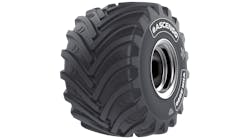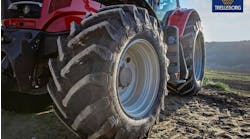The United Steelworkers (USW) are again petitioning the U.S. Department of Commerce to impose tariffs on imported tires. This time, the case is built around truck and bus tires from Thailand — the region that MTD research shows imports more tires into the U.S. than any other.
The union alleges that tires are being dumped in the U.S. and sold at “less than normal” value in the market, which in turn injures the domestic truck tire manufacturing industry. The USW says it represents that industry, as there are union members at five truck tire factories in the U.S. operated by Bridgestone Americas Inc., Goodyear Tire & Rubber Co. and Sumitomo Rubber USA LLC.
If this all seems familiar, it’s because the USW has taken the lead in other tariff investigations in the tire industry. In January 2016 the union sought both anti-dumping and countervailing duties on truck and bus tires imported from China. Those tariffs were ultimately imposed in February 2019, and remain in place.
And that case is pertinent here. In a statement, the USW said the imported tires from Thailand have been “fueled by Chinese investments,” resulting in dumping margins as high as 47.8%.
“Antidumping and countervailing duties on truck and bus tires imposed in 2019 have been essential in stemming the tide of unfairly traded tires from China,” said USW International President David McCall. “Now we’re seeing Chinese companies invest in their Thai operations, once again capturing market share and depressing prices.”
In the case against tires from Thailand, the USW points to import data that shows the number of truck and bus tires coming into the U.S. from Thailand has more than doubled since 2020, and the value of those tires more than doubled as well.
| Millions of tires | Value of tires in billions | |
| 2020 | 4.782 | $0.692 |
| 2021 | 7.212 | $1.131 |
| 2022 | 10.186 | $1.779 |
As part of the investigation, the USW is asking the government to gather pricing data on four specifically-sized drive tires: 16-ply, load range H tires in sizes 11R22.5 and 11R24.5, and 14-ply, load range G tires in sizes 295/75R22.5 and 225/70R19.5. (The union notes these are among the most popular sizes, and that three of the four sizes were also used in the investigation of truck tires from China.)
Here are the three things the U.S. Department of Commerce and International Trade Commission must weigh when deciding whether a domestic industry is being injured:
- The volume of the imported products
- The effect of those imports on U.S. prices for similar products, and
- The effect of the imports on domestic producers.
In terms of volume, the petitioners point to the growth of Thailand-produced tires in the last two years, and note that the apparent drop in shipments in the first half of 2023 compared to the first half of 2022 — 3.2 million truck tires compared to 4.7 million in 2023 — correlates with the overall decline in the truck tire market and the large inventories tire dealers had on hand at the start of this year.
As for price, the union says the imported tires “have undersold the domestic like product, and there are indications that these imports also suppressed prices to a significant degree.” It points to the “average unit values” (AUVs) of tires imported from Thailand, and notes they have been “significantly lower than the average unit values for imports from other sources.” Specifically, the union says “the AUVs of imports from Thailand have been 20 to 25 percent below the AUVs of imports from all other countries combined.”
In data presented in its petition, the union says from 2020 to 2022, and even through the first half of 2023, the AUVs of Thailand tires remained below the $200 threshold, while the values of tires from other select countries so far in 2023 range from $249.76 to $310.70.
The union says the imported tires from Thailand have had an adverse effect on the domestic industry in part because they’ve taken market share from domestically-produced tires. The union says the imports also prevented the domestic industry “from fully participating in the growth in demand” of truck and bus tires from 2020 to 2022.
“Apparent domestic consumption of truck and bus tires rose by 38.9%, but subject imports rose by a much more rapid 113%.”




